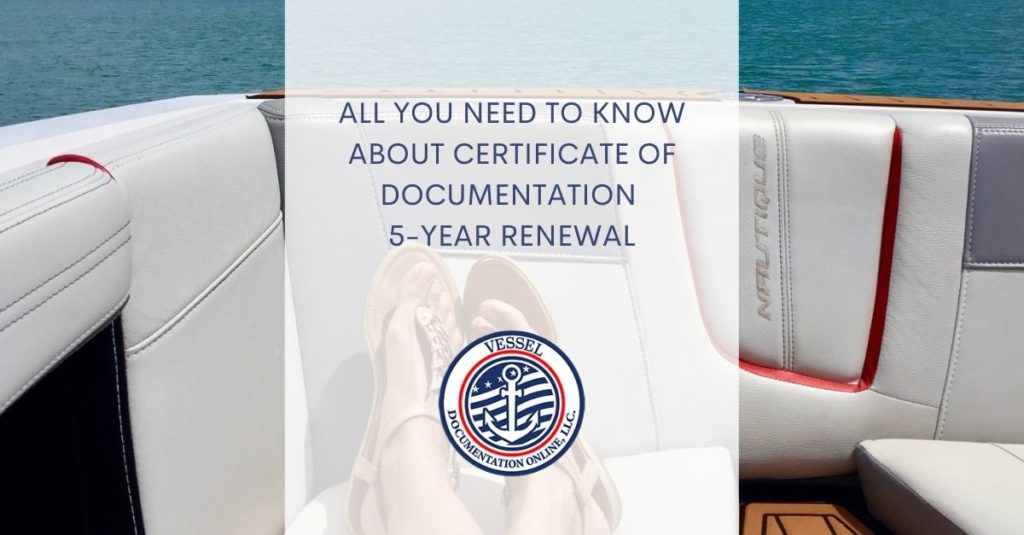Have you taken care of your certificate of documentation with the Coast Guard? So you’ve purchased yourself a recreational sea vessel. It’s a nice, generous-sized boat that could be your personal haven on water, a floating hotel, or bed-and-breakfast, if you may. You’ve taken care of all the fees and prepared yourself for the expectedly exorbitant fees that come with owning a boat. You’ve smartened up and taken all of these into account.
Little did you know that there’s one other important thing to take care of: the certificate of documentation with the US Coast Guard.
If you’re hearing about this for the first time, fret not. We have all the necessary information you’ll need to know about what it is, what it involves, and why you need it.

An All-Important Validity Extension
On February 18th of this year, the US Congress and the President signed and passed the Frank LoBiondo Coast Guard Authorization Act of 2018. This new ruling now requires the Coast Guard to issue recreational vessel’s certificates of documents for five years. It was done by updating the Code of Regulations.
As a vessel owner, this is welcoming news. From going through the long and tedious process of renewing your certificate of documents every year, your legal agreement is now prolonged for four more years before it expires. Convenience is one of the most appreciated perks one can get, and many vessel owners are grateful for this new change.
The Importance of Documenting Recreational Vessels
Many of you are probably asking: Why do we need to document our recreational vessels in the first place? What good will that do for us, exactly?
There are two primary reasons for this practice: the first one is that all qualified recreational vessels that are at least five net tons will be granted protection by the United States government. The second reason is to fulfill mortgage lender requirements.
Documentation of recreational vessels has five criteria: (1) as a result of the initial documentation of a newly-produced vessel, (2) as a result of the initial documentation of a newly-acquired vessel, (3) as an exchange of the vessel from one party to another, (4) as a replacement or reinstatement of the vessel, and (5) as a return to the documentation of a vessel.
Freedom and Flexibility with Your COD Renewal
Thanks to the Frank LoBiondo Coast Guard Authorization Act of 2018, recreational vessel owners are no longer obligated to renew their documents every year. At the same time, it also gives them the freedom and flexibility to schedule the renewal of their paperwork.
Since January 2019, vessel owners have been granted the choice to select the renewal period that would best suit them. It comes in a period of multiple years, with five years as the limit.
However, it’s worth noting that by January 1st of 2022, the only renewal period for all vessel owners is five years. That’s not a bad deal if you think about it. Because after renewing your vessel in one go, you have the next four years to relax and not think about it for the time being.
Enjoy the Newfound Convenience of Your Certificate of Documentation Renewal Process
Some of you who are reading this probably prefer the old way of renewing your CODs annually, and understandably so. A lot of you may think that doing it every five years may make you forget about it.
The upside, however, is a big deal. The renewal process itself can be a long-winding one, but with this new rule, you don’t need to make it a part of your other yearly obligations. And that’s a huge win.

